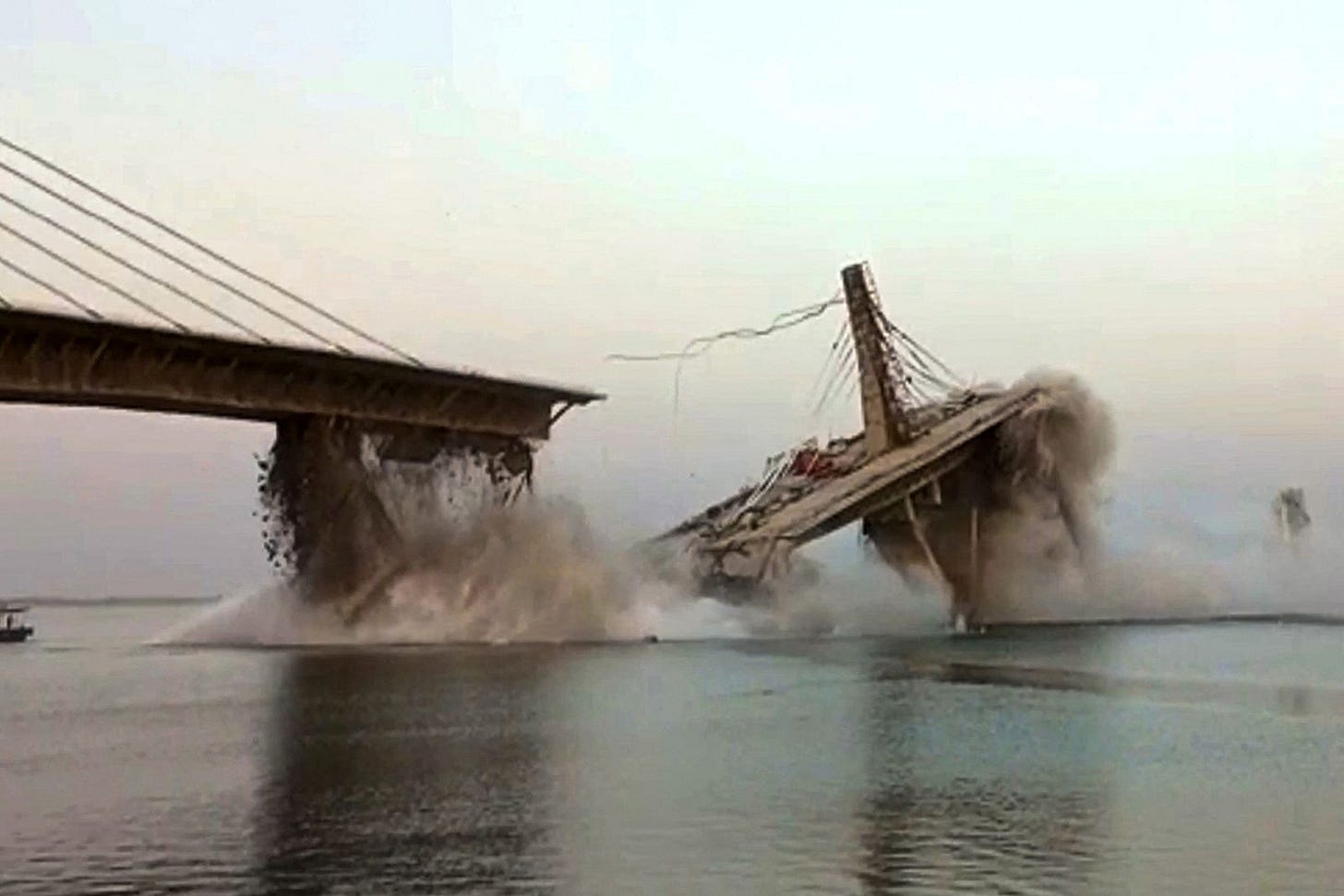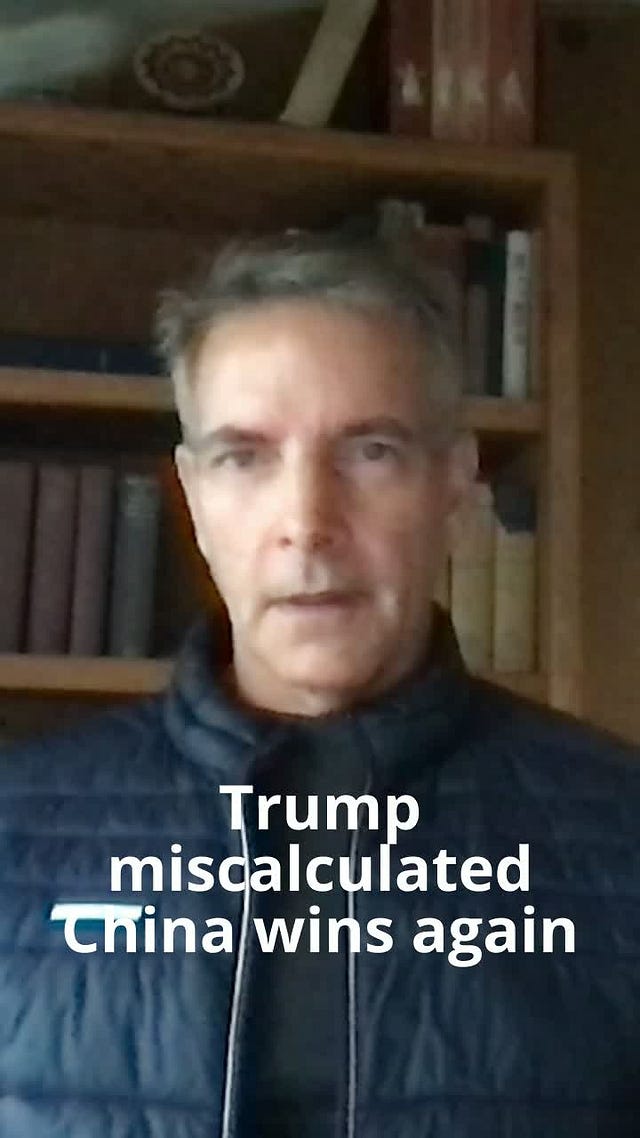Daily Brief: Economic Collapse? The Feds Say Yes.
A cultural analysis of global collapse: Why Europe relies on systems, Turkey reacts in real-time, and the U.S. is spiraling into economic ruin—without a plan, a strategy, or a clue.
In today’s email
🌐 Global systems under pressure—but responses couldn’t be more different
🇹🇷 Turkey slams the brakes with a surprise interest rate hike
🇪🇺 Europe cuts rates (again) to weather Trump’s trade war
🇺🇸 US tariffs risk recession—and there's no plan to stop it
🧠 The cross-cutting concept of Systemic vs. Reactionary Thinking
📚 Book of the Week
📱 Cultural Perspective on TikTok
🗳️Poll
Trump has officially wrecked the global economy, and countries are responding radically (culturally) differently.
🇹🇷 Turkey?
Instant rate hike, 46%. Reactionary, chaotic, political survival mode. This is high-stakes Craftsman energy: fix it fast, messily, stop the damage.
🇪🇺 Europe?
Measured. Institutional. Long-term. The ECB cuts rates, not in a panic,
to cushion the damage from Trump’s trade war. Systemic thinking, the scholar archetype in action, is predictable, rational, and effective.
🇺🇸 The US?
No strategy, just nationalism + tariffs + threats to the Fed. It’s not visionary—it’s anarchist—short-termism at its worst. Trump is treating the economy like a personal business deal.
Markets don’t collapse because of math. They collapse when culture fails. Systemic thinking builds trust. Institutions create stability. And the US just walked away from both.
Europe is adapting.
Turkey is reacting.
America is unraveling.
At the heart of this divergence is a cross-cutting concept, Systemic vs. Reactionary Thinking. Or a new category, in the case of the US, no thinking at all.
Cultural Dimensions Overview
To understand instability, we need more than economics. We need culture.
The EU has plans for years. The US thinks in election cycles, and the course changes daily under Trump. Turkey reacts in real time. A difference in long-term orientation vs. short-termism
Europe sticks to broad rules. Turkey adjusts based on political survival. Trump treats the economy like a personal business deal. Decisions stemming from universalism and particularism
Who makes the decisions? Independent institutions based on the data, or a single, unpredictable leader, based on his mood? An expression of institutional trust vs. executive volatility
These frameworks explain why the same pressure produces such different outcomes.
The News
🇹🇷 Turkey’s Central Bank Raises Interest Rates Amid Market Turmoil
Cultural Lens: Reactionary
Archetype: The Craftsman
After the politically charged arrest of Istanbul’s mayor, Turkey’s economy buckled. Investors fled, the lira crashed, and the central bank hiked interest rates by a shocking 350 basis points—up to 46%.
This is reactionary governance. Economic policy bends to political drama in Turkey’s high power distance culture. Institutions don’t lead—they follow.
It’s the craftsman archetype, getting the job done, but also defensive and reactive when cornered.
Had this been managed systemically, the crash might never have happened.
🇪🇺 ECB Cuts Rates to Mitigate US Tariff Impact
Cultural Lens: Long-Term Orientation
Archetype: The Scholar
This is the EU’s seventh rate cut in a year. Not a panic move, but a methodical adjustment to buffer the economy from Trump’s escalating trade war.
The ECB isn’t just defending growth, it’s defending predictability to create stability.
This is systemic thinking: coordinated, rational, and institutional. It’s the scholar archetype: not flashy or fast, but focused, fact-based, and effective.
And while the US destabilizes the global economy, Europe manages the consequences.
🇺🇸 US Recession Almost a Certainty and Collapse a Possibility
Cultural Lens: Short-Termism
Archetype: The Visionary (or Anarchist - I’m making this one up)
The Trump administration is forging ahead with tariffs even though everyone else understands they do harm and are useless. Economists warn of a recession, and the Feds warn of collapse.
Trump has no strategy. It’s short-termism cloaked in nationalism and the shadow side of the visionary, a disruptor who confuses chaos with change.
America built the world economy, and Trump burns it to the ground.
Why This Matters
Markets rise and fall. But what holds them up, or tears them down, is culture.
Systemic thinking builds resilience. It anticipates, adapts, and responds with discipline. It values institutions over individuals.
The US has lost all sense, and it isn’t just making bad decisions; it’s abandoning the cultural frameworks that once made its economy strong. It’s just a matter of time before it collapses.
Understanding — Not Judging
Imagine three airline pilots facing turbulence on landing.
One follows protocol, adjusts altitude, and lands safely. One waits until the wings shake, then yanks the throttle.
And the third? He insists turbulence is fake news, blames the passengers, and shuts off autopilot mid-flight.
All three planes are in the same storm. But only one is headed for a crash.
That’s today’s global economy. The weather’s rough, but the cultural pilot determines the landing.
Book Recommendation for the Week
Peter Hopkirk’s The Great Game provides insight into Russian thought and empire-building strategy. If you know history, the future is not a mystery.
More Cultural Perspectives on TikTok
More of Trump’s mistakes translate into wins for China
If you are not white and rich, maybe it's best not to travel to the US
More farmers lose money under Trump, when will they stop voting for him?






